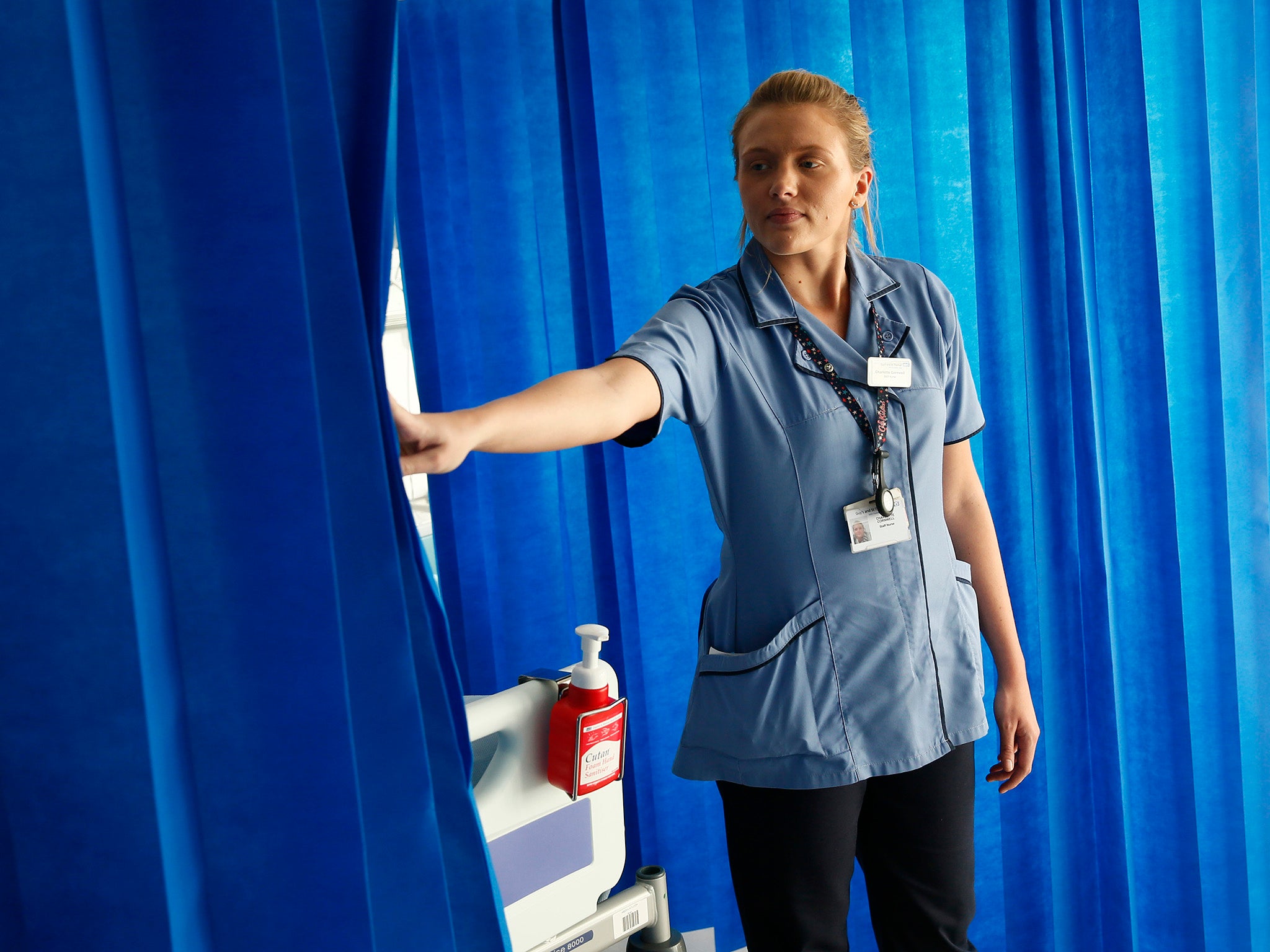Female nurses paid much less than male counterparts despite dominating sector, report finds
'Gendered notions of nursing and nurses will always stand in the way of any efforts to improve the standing and attractiveness of nursing as a career,' says expert

Your support helps us to tell the story
From reproductive rights to climate change to Big Tech, The Independent is on the ground when the story is developing. Whether it's investigating the financials of Elon Musk's pro-Trump PAC or producing our latest documentary, 'The A Word', which shines a light on the American women fighting for reproductive rights, we know how important it is to parse out the facts from the messaging.
At such a critical moment in US history, we need reporters on the ground. Your donation allows us to keep sending journalists to speak to both sides of the story.
The Independent is trusted by Americans across the entire political spectrum. And unlike many other quality news outlets, we choose not to lock Americans out of our reporting and analysis with paywalls. We believe quality journalism should be available to everyone, paid for by those who can afford it.
Your support makes all the difference.Nurses are undervalued due to the sector predominantly being made up of women while female nurses are paid significantly less than their male counterparts, a damning new report has found.
The study, conducted by the Royal College of Nursing, found the “old-fashioned view that caring for others is a feminine characteristic” continues to persevere in British society and has led to the curtailing of nurses’ wages and working conditions for generations.
Researchers warned the grave nursing shortage will continue to worsen if pay for nurses is not improved. While one in nine nursing jobs are left empty, a third of the profession are due to retire by 2026.
The report, which also involved Oxford Brookes University, discovered nurses routinely have to turn their hand to responsibilities which would have “previously been the preserve of doctors”, despite earning an average of £15.42 per hour – less than a third of the amount earned by doctors and dentists.
Although nine out of ten nurses in the UK are women, they take home on average 17 per cent less than men in similar roles every week. Female nurses also make up less than a third of senior positions.
Dr Anne Laure Humbert, one of the report’s authors, said: “Despite the growing complexity and technical nature of the work, as well as the difficult emotional labour it entails, ‘old-fashioned’ perceptions persist of nursing as a job carried out by women for whom caring is ‘natural’, thus deskilling and devaluing those involved.
“We see care as a naturally feminine skill or characteristic. This sits in direct opposition to the high level of skills and professionalisation required in contemporary nursing.”
The report argued the serious dearth of nurses should have triggered an increase in wages to meet demand but has not due to the profession not being sufficiently valued.
Dr Kate Clayton-Hathway, research fellow at Oxford Brookes University, said: “Concerns were also raised regarding the well-being of nurses, primarily because of high levels of work intensity and unsafe staffing levels.
“In terms of career progression, increasing numbers are choosing flexibility over career development largely because of a lack of choice or control over working patterns or working hours, a paucity of family care provision and lack of support for training and development.
“Nursing suffers from an image that fails to match the reality of a professional life defined by high level technical, emotional and cognitive skills. This image, which is underpinned by gendered notions of nursing and nurses, will always stand in the way of any efforts to improve the standing and attractiveness of nursing as a career.”
Nursing is a highly clinically skilled line of work and all new nurses are required to have degrees.
Rachael McIlroy, Royal College of Nursing’s senior research lead, said: “In reality, nursing is a complex and skilled profession yet too often nurses feel their voices are unheard and their value unrecognised.
“We hope that this research will spark a conversation within the nursing profession, among nursing staff, employers, regulators and policymakers about the critical role played by the largest health care occupation in the country and how we better value it in terms of status and pay.”
Sam Smethers, chief executive of Fawcett Society, a women’s rights organisation, said: “Work done by women is consistently undervalued right across the labour market. Women also do the lion’s share of unpaid care work which contributes billions to the economy but is invisible so not valued. We agree with the Royal College of Nursing. We need to start valuing women.”
Research by Unison which came in June found NHS workers including nurses and cleaners have experienced “serious” sexual harassment which includes upskirting, groping and rape in the workplace.
The union, who polled 8,000 healthcare workers, warned some victims had contemplated suicide and explained sexual harassment was perpetrated by fellow workers, patients or contractors.
Join our commenting forum
Join thought-provoking conversations, follow other Independent readers and see their replies
Comments